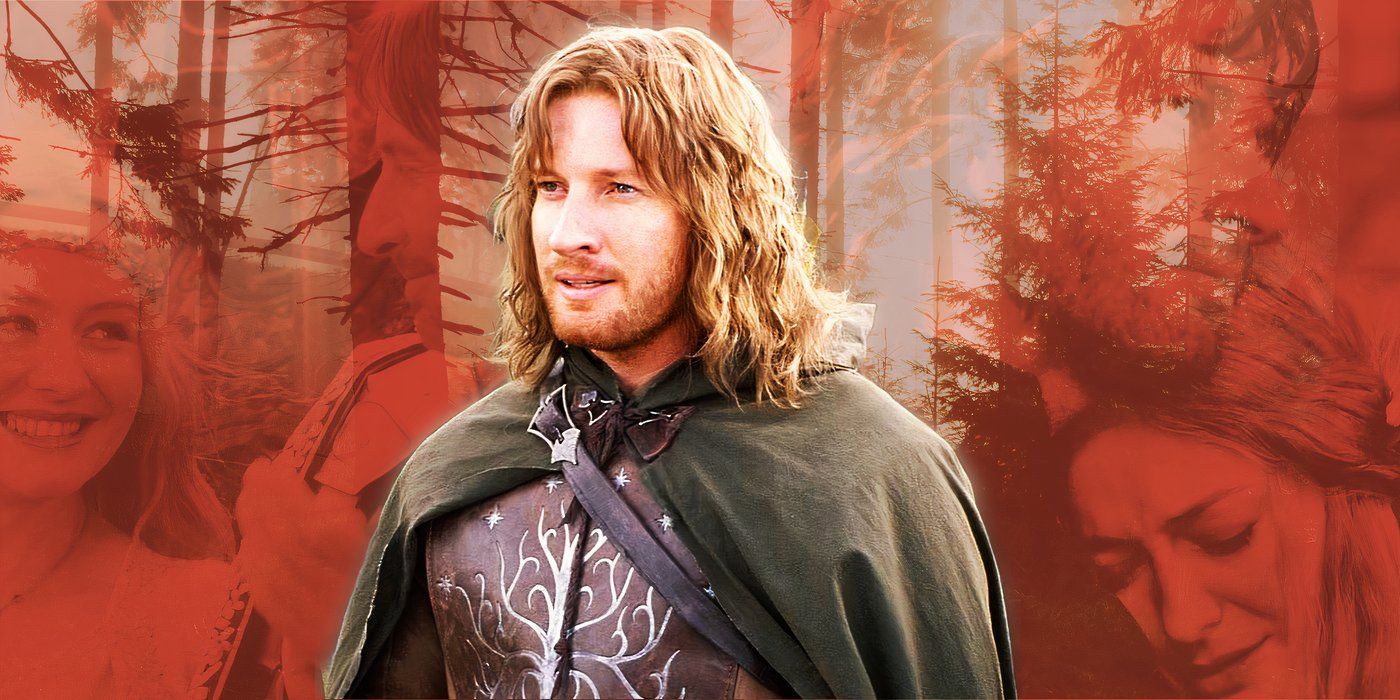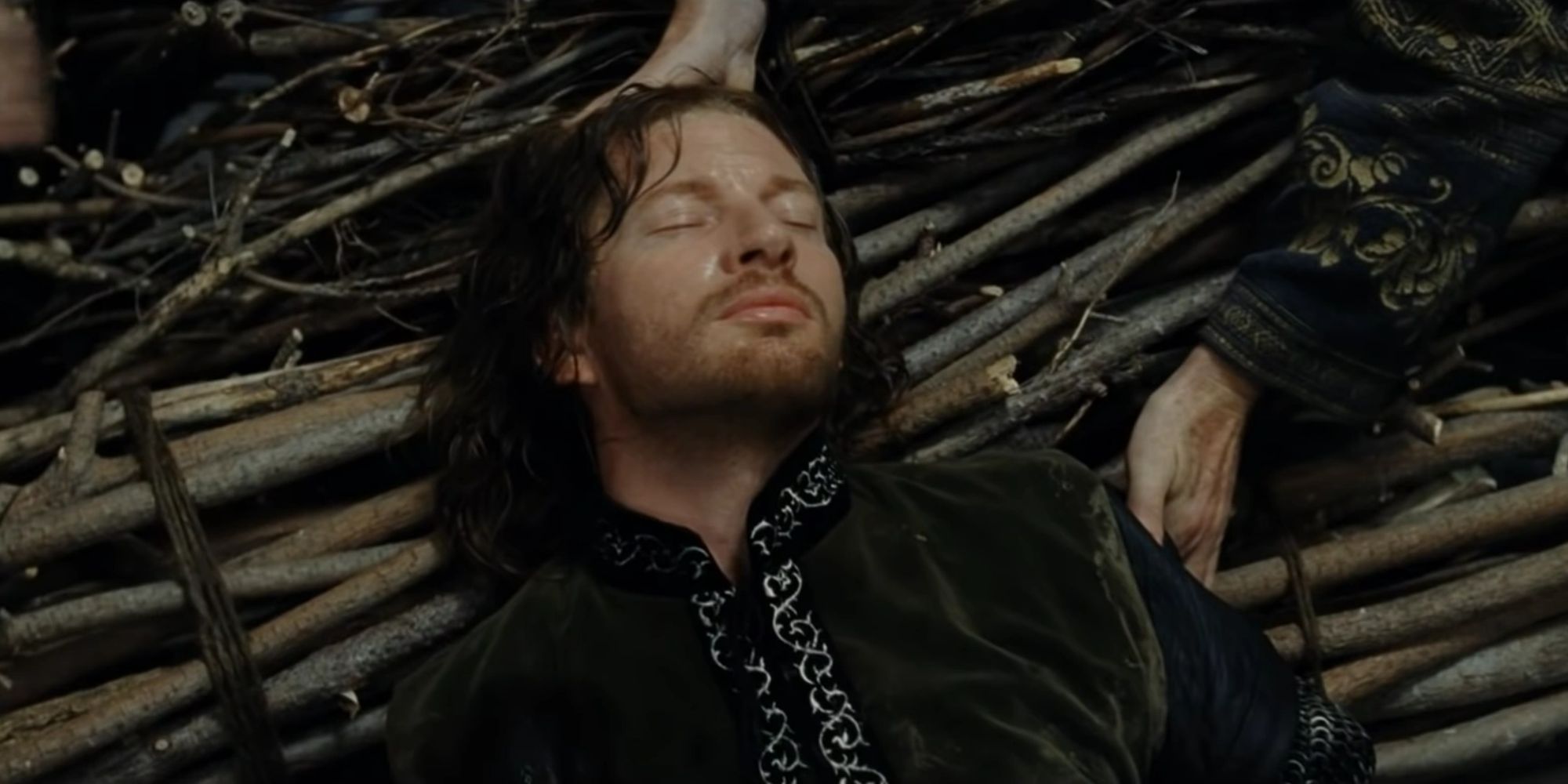
Faramir is one of the most important human characters and the greatest heroes in history. The Lord of the Ringsand his story continues even after Sauron is destroyed. Faramir is known for refusing the One Ring in The Lord of the Rings and having the prophetic dream, “Look for the sword that was broken.” Faramir's older brother is Boromir, who is unable to resist the One Ring, leading to Boromir's tragic death in The Lord of the Rings. Faramir exists as a narrative foil to Boromir, and he is one of the rare humans who can overcome temptation regarding the One Ring.
Although Faramir's role is more critical in the first half of the The Lord of the Rings, he is a constant presence throughout the series and ultimately survives the war against Sauron. Faramir almost dies during the war because of the Black Breath and later participates in the Battle of the Pelennor Fields. Although Faramir's father Denethor tries to kill Faramir and himself during this battle, Gandalf saves Faramir's life. There are many events that follow Sauron's final defeat in The Lord of the Ringsand several include Faramir and the course of his life.
Faramir became prince of Ithilien after The Lord of the Rings
Aragorn names Faramir as one of the original administrators and the prince of Ithilien
While Gandalf crowned Aragorn, Faramir led Aragorn's coronation ceremony, illustrating his acceptance and support for Aragorn to become king. In return, Aragorn decides to reintroduce Stewards during his reign, leading Aragorn to name Faramir Regent and Prince of Ithilien. This role allows Faramir to be one of King Elessar's Commander-in-Chief while defending Gondor's eastern borders. As the new Prince of Ithilien and Steward of Gondor, Faramir cleanses the Morgul Vale of enemies once and for all, establishing peace and prosperity in the district. Faramir also falls in love, marries and starts a family as Prince of Ithilien.
Faramir and Éowyn started a family together after the king's return
Faramir and Éowyn fall in love in the healing houses
After the Battle of the Pelennor Fields, Faramir spends the rest of the war in the Houses of Healing of Gondor, where Faramir meets Éowyn in The Return of the King. They spend time together, both healing serious wounds, and eventually fall in love.—Faramir admires Éowyn's melancholy, beauty and pride. They become engaged at a feast in honor of Théoden in Rohan before leaving to begin their lives together. After the war, Faramir marries Éowyn, and they decide to move to Emyn Arnen, a set of small hills in Ithilien, within sight of Minas Tirith.
Faramir living in Emyn Arnen means he will become Lord of Emyn Arnen. It is unknown how many children Faramir and Éowyn produce, but they have at least one son, Elboron, who becomes Faramir's heir and assumes his titles upon his father's death. Faramir also has other notable descendants of his son. Not much else is known about Faramir and Éowyn, but they led happy lives. Faramir died in the year of the Fourth Age, aged 82, when he was 120 years old. Faramir lived a particularly long life because he has significant Dúnedain noble ancestry.
What else we know about Faramir's fate after the end of The Lord of the Rings
Faramir's legacy lives on through his descendants
Faramir dies in the Fourth Age at age 82, the first Administrator in hundreds of years to live more than 100 years. Furthermore, Faramir's legacy thrives under his descendants. The son of Elboron – grandson of Faramir – Barahir, becomes a renowned figure for writing about Aragorn and Arwen in The Tale of Aragorn and Arwen. Barahir Tales of Aragorn and Arwen It is so significant that the writings appear in the Book of Thain, a more recent edition of the Red Book of Hesperia. Faramir's descendants continue to hold the title of Steward of Gondor, illustrating the importance of Faramir's lineage.
Much of the information about Faramir's life after Sauron's defeat is due to JRR Tolkien's long and extensive Lord of the Rings Appendices, which the original film trilogy didn't always consult because of how much the film's narrative had to condense.
Much of the information about Faramir's life after Sauron's defeat is due to JRR Tolkien's long and extensive account. Lord of the Rings Appendices, which the original film trilogy did not always consult due to the amount that the cinematic narrative needed to condense. Furthermore, Peter Jackson's adaptation of the original trilogy established major changes in the The Lord of the Rings: The Two Towers and the final film, and Faramir is not exempt from these changes.
As a result, the film series cut many of Faramir's scenes, but the extended edition of the film The Lord of the Rings: The Return of the King depicts Faramir and Éowyn in the Houses of Healing in Gondor. The mesmerizing chemistry the actors portray demonstrates how Faramir and Éowyn fall in love. Otherwise, the films don't particularly address Faramir after Sauron's defeat. It would be more acceptable if The Lord of the Rings: The Twin Towers did not change the essence of Faramir's character, but Faramir's lack of post-Sauron life in the films is a bit disappointing.
